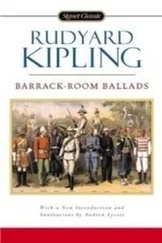Джозеф Киплинг - From Sea to Sea
Здесь есть возможность читать онлайн «Джозеф Киплинг - From Sea to Sea» весь текст электронной книги совершенно бесплатно (целиком полную версию без сокращений). В некоторых случаях можно слушать аудио, скачать через торрент в формате fb2 и присутствует краткое содержание. Год выпуска: 2014, Издательство: epubBooks Classics, Жанр: Биографии и Мемуары, Публицистика, на английском языке. Описание произведения, (предисловие) а так же отзывы посетителей доступны на портале библиотеки ЛибКат.
- Название:From Sea to Sea
- Автор:
- Издательство:epubBooks Classics
- Жанр:
- Год:2014
- ISBN:нет данных
- Рейтинг книги:3 / 5. Голосов: 1
-
Избранное:Добавить в избранное
- Отзывы:
-
Ваша оценка:
- 60
- 1
- 2
- 3
- 4
- 5
From Sea to Sea: краткое содержание, описание и аннотация
Предлагаем к чтению аннотацию, описание, краткое содержание или предисловие (зависит от того, что написал сам автор книги «From Sea to Sea»). Если вы не нашли необходимую информацию о книге — напишите в комментариях, мы постараемся отыскать её.
From Sea to Sea — читать онлайн бесплатно полную книгу (весь текст) целиком
Ниже представлен текст книги, разбитый по страницам. Система сохранения места последней прочитанной страницы, позволяет с удобством читать онлайн бесплатно книгу «From Sea to Sea», без необходимости каждый раз заново искать на чём Вы остановились. Поставьте закладку, и сможете в любой момент перейти на страницу, на которой закончили чтение.
Интервал:
Закладка:
There is a twelve–hundred yards' range running down one side of the station, and the condition of the grass by the firing butts tells its own tale. Scattered in the ranks of the volunteers are a fair number of old soldiers, for the Company has a weakness for recruiting from the Army for its guards who may, in time, become station–masters. A good man from the Army, with his papers all correct and certificates from his commanding officer, can, after depositing twenty pounds to pay his home passage, in the event of his services being dispensed with, enter the Company's service on something less than one hundred rupees a month and rise in time to four hundred as a station–master. A railway bungalow—and they are as substantially built as the engines—will cost him more than one–ninth of the pay of his grade, and the Provident Fund provides for his latter end.
Think for a moment of the number of men that a line running from Howrah to Delhi must use, and you will realise what an enormous amount of patronage the Company holds in its hands. Naturally a father who has worked for the line expects the line to do something for the son; and the line is not backward in meeting his wishes where possible. The sons of old servants may be taken on at fifteen years of age, or thereabouts, as apprentices in the "shops," receiving twenty rupees in the first and fifty in the last year, of their indentures. Then they come on the books as full "men" on perhaps Rs. 65 a month, and the road is open to them in many ways. They may become foremen of departments on Rs. 500 a month, or drivers earning with overtime Rs. 370; or if they have been brought into the audit or the traffic, they may control innumerable Babus and draw several hundreds of rupees monthly; or, at eighteen or nineteen, they may be ticket–collectors, working up to the grade of guard, etc. Every rank of the huge, human hive has a desire to see its sons placed properly, and the native workmen, about three thousand, in the locomotive department only, are, said one man, "making a family affair of it altogether. You see all those men turning brass and looking after the machinery? They've all got relatives, and a lot of 'em own land out Monghyr–way close to us. They bring on their sons as soon as they are old enough to do anything, and the Company rather encourages it. You see the father is in a way responsible for his son, and he'll teach him all he knows, and in that way the Company has a hold on them all. You've no notion how sharp a native is when he's working on his own hook. All the district round here, right up to Monghyr, is more or less dependent on the railway."
The Babus in the traffic department, in the stores, issue department, in all the departments where men sit through the long, long Indian day among ledgers, and check and pencil and deal in figures and items and rupees, may be counted by hundreds. Imagine the struggle among them to locate their sons in comfortable cane–bottomed chairs, in front of a big pewter inkstand and stacks of paper! The Babus make beautiful accountants, and if we could only see it, a merciful Providence has made the Babu for figures and detail. Without him, the dividends of any company would be eaten up by the expenses of English or city–bred clerks. The Babu is a great man, and, to respect him, you must see five score or so of him in a room a hundred yards long, bending over ledgers, ledgers, and yet more ledgers—silent as the Sphinx and busy as a bee. He is the lubricant of the great machinery of the Company whose ways and works cannot be dealt with in a single scrawl.
Chapter II
The Shops
The railway folk, like the army and civilian castes, have their own language and life, which an outsider cannot hope to understand. For instance, when Jamalpur refers to itself as being "on the Long Siding," a lengthy explanation is necessary before the visitor grasps the fact that the whole of the two hundred and thirty odd miles of the loop from Luckeeserai to Kanu–Junction via Bhagalpur is thus contemptuously treated. Jamalpur insists that it is out of the world, and makes this an excuse for being proud of itself and all its institutions. But in one thing it is badly, disgracefully provided. At a moderate estimate there must be about two hundred Europeans with their families in this place. They can, and do, get their small supplies from Calcutta, but they are dependent on the tender mercies of the bazaar for their meat, which seems to be hawked from door to door. There is a Raja who owns or has an interest in the land on which the station stands, and he is averse to cow–killing. For these reasons, Jamalpur is not too well supplied with good meat, and what it wants is a decent meat–market with cleanly controlled slaughtering arrangements. The "Company," who gives grants to the schools and builds the institute and throws the shadow of its protection all over the place, might help this scheme forward.
The heart of Jamalpur is the "shops," and here a visitor will see more things in an hour than he can understand in a year. Steam Street very appropriately leads to the forty or fifty acres that the "shops" cover, and to the busy silence of the loco. superintendent's office, where, a man must put down his name and his business on a slip of paper before he can penetrate into the Temple of Vulcan. About three thousand five hundred men are in the "shops," and, ten minutes after the day's work has begun, the assistant superintendent knows exactly how many are "in." The heads of departments—silent, heavy–handed men, captains of five hundred or more—have their names fairly printed on a board which is exactly like a pool–marker. They "star a life" when they come in, and their few names alone represent salaries to the extent of six thousand a month. They are men worth hearing deferentially. They hail from Manchester and the Clyde, and the great ironworks of the North: pleasant as cold water in a thirsty land is it to hear again the full Northumbrian burr or the long–drawn Yorkshire "aye." Under their great gravity of demeanour—a man who is in charge of a few lakhs' worth of plant cannot afford to be riotously mirthful—lurks melody and humour. They can sing like north–countrymen, and in their hours of ease go back to the speech of the Iron countries they have left behind, when "Ab o' th' yate" and all "Ben Briarly's" shrewd wit shakes the warm air of Bengal with deep–chested laughter. Hear "Ruglan' Toon," with a chorus as true as the fall of trip–hammers, and fancy that you are back again in the smoky, rattling, ringing North!
But this is the "unofficial" side. Go forward through the gates under the mango trees, and set foot at once in sheds which have as little to do with mangoes as a locomotive with Lakshmi. The "buzzer" howls, for it is nearly tiffin time. There is a rush from every quarter of the shops, a cloud of flying natives, and a procession of more sedately pacing Englishmen, and in three short minutes you are left absolutely alone among arrested wheels and belts, pulleys, cranks, and cranes—in a silence only broken by the soft sigh of a far–away steam–valve or the cooing of pigeons. You are, by favour freely granted, at liberty to wander anywhere you please through the deserted works. Walk into a huge, brick–built, tin–roofed stable, capable of holding twenty–four locomotives under treatment, and see what must be done to the Iron Horse once in every three years if he is to do his work well. On reflection, Iron Horse is wrong. An engine is a she—as distinctly feminine as a ship or a mine. Here stands the Echo , her wheels off, resting on blocks, her underside machinery taken out, and her side scrawled with mysterious hieroglyphics in chalk. An enormous green–painted iron harness–rack bears her piston and eccentric rods, and a neatly painted board shows that such and such Englishmen are the fitter, assistant, and apprentice engaged in editing that Echo . An engine seen from the platform and an engine viewed from underneath are two very different things. The one is as unimpressive as a cart; the other as imposing as a man–of–war in the yard.
Читать дальшеИнтервал:
Закладка:
Похожие книги на «From Sea to Sea»
Представляем Вашему вниманию похожие книги на «From Sea to Sea» списком для выбора. Мы отобрали схожую по названию и смыслу литературу в надежде предоставить читателям больше вариантов отыскать новые, интересные, ещё непрочитанные произведения.
Обсуждение, отзывы о книге «From Sea to Sea» и просто собственные мнения читателей. Оставьте ваши комментарии, напишите, что Вы думаете о произведении, его смысле или главных героях. Укажите что конкретно понравилось, а что нет, и почему Вы так считаете.












